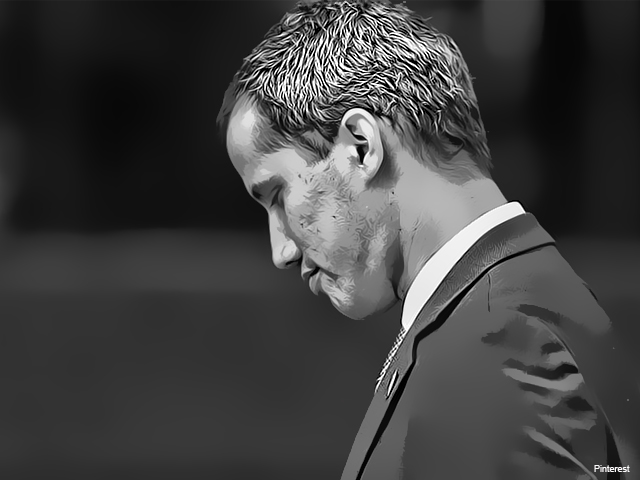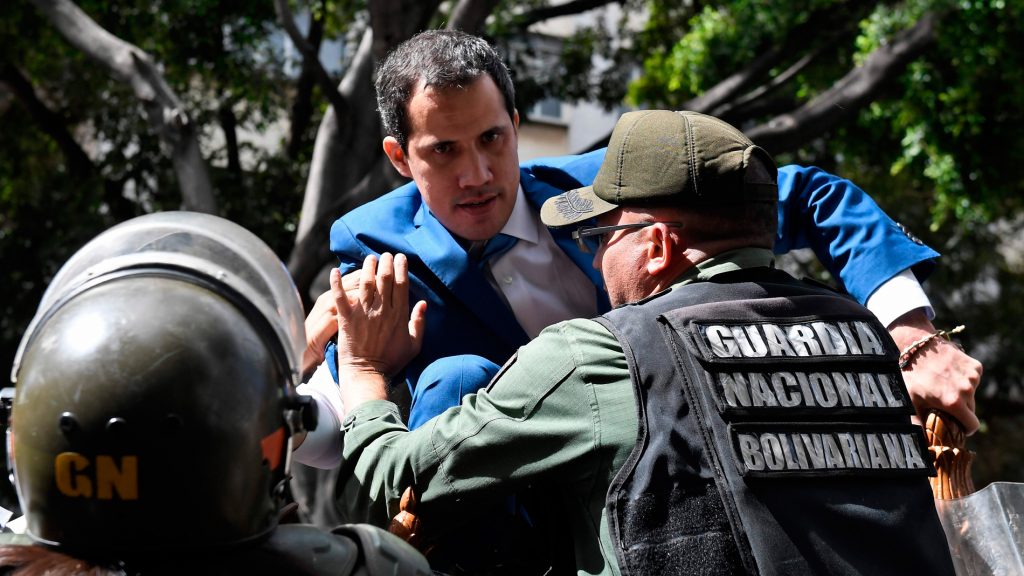RIO DE JANEIRO, BRAZIL – Accused of corruption and relations with paramilitary groups in Colombia, the opponent Juan Guaidó failed to secure his re-election as president of the National Assembly of Venezuela in a vote held on Sunday, January 5th.
Luis Eduardo Parra, from the First Justice party – part of the Democratic Unity Table – was elected with the support of dissatisfied opponents and deputies from the PSUV, Maduro’s party, and took the place of the self-proclaimed president.

The new direction of the Venezuelan Parliament will be headed by Parra, Franklin Duarte (Copei), José Gregorio Noriega (Vontade Popular) and Negal Morales (Democratic Action), all members of the opposition bloc.
According to TeleSUR network, they were elected with 81 votes out of 150 (exceeding the minimum quorum). In total, there are 167 deputies.
Guaidó and leaders of other opposition parties denounced on social networks that the Bolivarian National Guard (GNB) was preventing opposition deputies from entering the assembly. “Military officers try to prevent deputies from fulfilling their duty to defend the Venezuelans, the people they have also sworn to protect. Against this, we are fighting and we will overcome it together,” he said.
He then threatened his former allies, who supported the election of Parra. “Today, those who help prevent the legitimate installation of the Venezuelan Parliament become accomplices of the dictatorship and accomplices of those who are oppressing the people of Venezuela. They will be exposed to their relatives, to the country and to the world,” he tweeted.
According to supporters of chavismo, Guaidó’s followers did not enter Parliament because they knew they would lose the vote. “The Assembly was installed, there was a quorum and Guaidó and part of his followers didn’t enter because they didn’t have votes, and they knew they would lose,” said William Castillo, a member of Venezuela’s Foreign Ministry.

Assembly President-elect Luis Parra also said Guaidó did not want to enter. “Nobody stopped Juan Guaidó from entering. He didn’t enter because he didn’t have any votes, so he stayed outside the Federal Legislative Palace. Others who had been sent to jail came in bravely. Let’s not get addicted to the past and Guaidó is the past,” he said.
Despite Guaidó’s accusations of an alleged coup, the dissatisfaction of opposition members with his leadership was already visible and the fall seemed imminent. “For much of 2019, you were the greatest hope of this country, but you became the greatest disappointment. …] Juan Guaidó, as of today your time is up,” said opposition Congressman José Brito shortly before the Assembly session began.
GNB published a note denying having prevented opposition deputies from entering the assembly. “We guarantee the freedom of the press, the security of the deputies and citizens who are inside and outside these facilities; promote peace and respect human rights,” he said.
Update, January 6th: After a long back and forth Guaidó is again president of Venezuelan Parliament. Opposition leader and self-appointed head of state Juan Guaidó was re-elected president of parliament by opposition members in a session outside the building in Caracas on Sunday. Read here.

